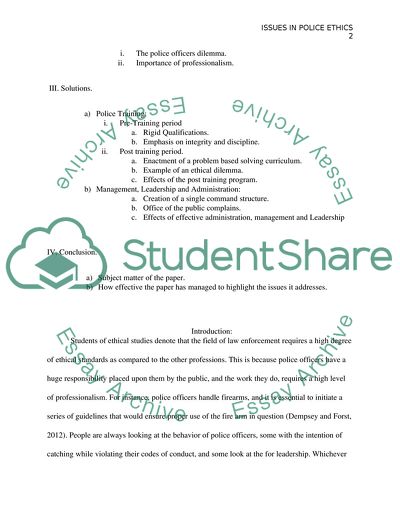Cite this document
(Issues In Police Ethics Research Paper Example | Topics and Well Written Essays - 3000 words, n.d.)
Issues In Police Ethics Research Paper Example | Topics and Well Written Essays - 3000 words. Retrieved from https://studentshare.org/social-science/1798005-law-enforcement-the-ethical-and-legal-issues
Issues In Police Ethics Research Paper Example | Topics and Well Written Essays - 3000 words. Retrieved from https://studentshare.org/social-science/1798005-law-enforcement-the-ethical-and-legal-issues
(Issues In Police Ethics Research Paper Example | Topics and Well Written Essays - 3000 Words)
Issues In Police Ethics Research Paper Example | Topics and Well Written Essays - 3000 Words. https://studentshare.org/social-science/1798005-law-enforcement-the-ethical-and-legal-issues.
Issues In Police Ethics Research Paper Example | Topics and Well Written Essays - 3000 Words. https://studentshare.org/social-science/1798005-law-enforcement-the-ethical-and-legal-issues.
“Issues In Police Ethics Research Paper Example | Topics and Well Written Essays - 3000 Words”, n.d. https://studentshare.org/social-science/1798005-law-enforcement-the-ethical-and-legal-issues.


